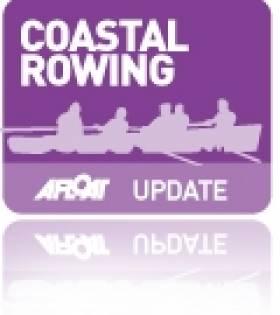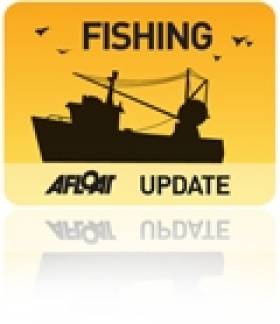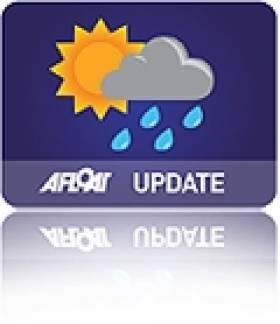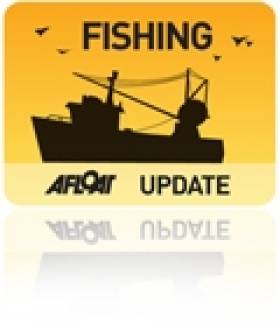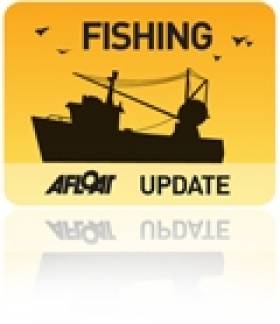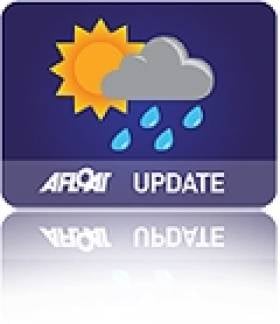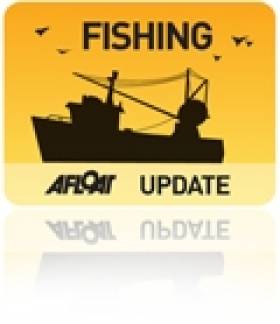Displaying items by tag: Coastal
Traditional Skiff Rowing Comes to Dun Laoghaire
#skiffracing – St. Michael's rowing club in Dun Laoghaire will host its leg of the East Coast Rowing calendar on Sunday 24th June. The regatta will take place from the town's West Pier to the North of Seapoint Tower, with teams competing from all over the East Coast. The first race begins at 2pm with the finale at around 6pm.
This year's event, co sponsored by Dun Laoghaire County Council, will see hundreds of men women and children compete over a gruelling circuit in a bid to be crowned 2012 champions in their respective field. Viewing might be best from the beach at Salthill DART station and will be an opportunity to enjoy this traditional form of rowing.
The Dun Laoghaire regatta will see the reintroduction of the East Coast Tug-O-War competition.
#COASTAL ROWING – Over the coming May bank holiday weekend (4th-6th May), 12 men and women of St Michael's Rowing Club, Dun Laoghaire, will take part in a biennial rowing race across the Irish Sea known as 'the Celtic Challenge'. The race sets off from Arklow, Co. Wicklow with the finishing line in Aberystwyth, Wales. At 150km, this relay race is billed as the longest 'true' rowing race in the world and draws together 27 teams from Wales, Ireland and beyond. The team is taking on this challenge to raise funds for a clubhouse in Dun Laoghaire, for the first time in the club's 90 year history.
Not many races start and finish in different countries, a source of pride to the Welsh and Irish oarsmen and women involved. So too is the sport of coastal rowing itself, which differs from the Olympic or 'Oxford-v-Cambridge' code of rowing in a number of key ways. Seats are fixed, not sliding, and boats are of a more substantial construction to tackle the swell on the open seas, which can reach several metres.
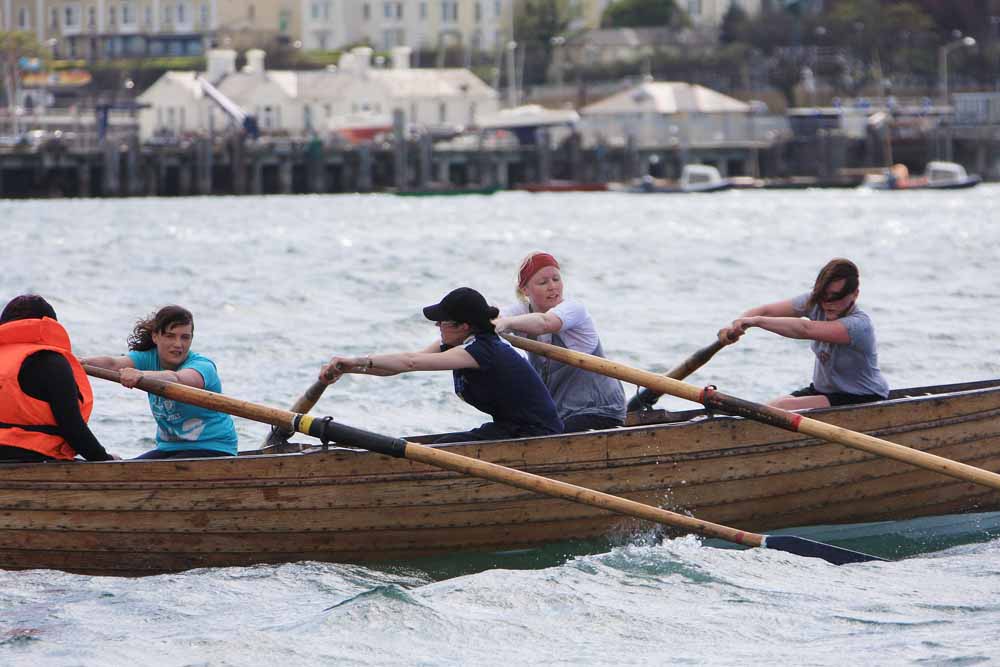
A St. Michael's boat and crew in training for the Celtic Challenge Cox: Tania Hashmi, Nicola Fitzgerald, Sam Nagle, Kathryn O'Leary, Julia Boyle
St. Michael's take things a step further by using quarter-ton wooden clinker-built east coast skiffs rather than the modern fibreglass models, used by all other competitors in 2010. Their solid wood oars are three times heavier than carbon fibre equivalents, requiring strength and a particular technique. In common with other clubs of Dublin and Wicklow, these boats originate from the 'Hobblers' of old; crews of local men who would engage in unlicensed pilotage of merchant shipping.
Their neighbour in Dun Laoghaire, the now seasonal HSS Stena Explorer consumes 20,000 litres of fuel per hour in crossing the Irish Sea. The St. Michael's squad will be powered by pasta, fig rolls, and energy drinks. But far from taking any moral high ground, the rowers will be glad of the ferry for the return journey home.
Each competing team in the Celtic Challenge consists of three rotating crews of four rowers and is accompanied by a support boat for navigation and for accommodating the resting crews. Changeover strategy is down to each team, but most opt for a one-hour-on, two-hours-off format. Depending on weather conditions, the race may start in Arklow on the afternoon of the Friday, Saturday or Sunday. Crews row through the night, arriving in Aberystwyth the following morning or afternoon.
The squad are actively seeking sponsorship for the challenge, in a drive to raise funds for a new clubhouse in Dun Laoghaire Harbour. Currently, the club lacks space to store their three wooden boats, space for indoor training and is without changing facilities for the men, women and children who row for the club. It is hoped that the money raised can be put towards achieving this long-standing goal.
The event is unique, very challenging and will test the 12 men and women taking part, both mentally and physically. Their oarsmen and oarswomen will have to contend with waves, currents, blisters, seasickness, lack of sleep and the particular challenges of rowing in the dark. The crossing is expected to take over 20 hours, with the St. Michael's Squad currently training hard on land and sea in preparation.
Some of the 2012 squad have made the crossing before, with others new to the event. One such first-timer is Wales born Gareth Whittington, now living in Dun Laoghaire who is relishing the prospect of a free ticket home, "I've been told since I moved here that Welshmen are just Irishmen who couldn't row west to the Promised Land, so I've something to prove to my Irish teammates!"
Fishing Industry Welcomes Selective Nets, Grant Aid at Irish Skipper Expo
#FISHING - Minister for the Marine Simon Coveney briefed the Irish Skipper Expo in Galway last weekend on a new initiative promoting the use of selective conservation fishing nets, which allow young fish to escape.
Under the initiative in the Celtic Sea, additional quotas of up to 25% will be made available by the minister to skippers of Irish fishing boats which use an escape panel in their nets, allowing young whiting and haddock to escape.
The escape panel, developed by the Irish industry, has been endorsed at EU level and is expected to be a mandatory requirement later in the year.
Minister Coveney said on Saturday: “The use of this panel will significantly reduce discards of juvenile whiting and haddock in the Celtic Sea, allowing juvenile fish to grow and mature and contribute to increased stock size and returns for fishermen in future years.
"I believe that this offers an example of a practical approach to dealing effectively with the discards problem and retention of a flexible quota allocation system that we should take forward in the context of the Common Fisheries Policy Review."
In other news, Bord Iascaigh Mhara (BIM) announced €1.5 million in grant aid for the Irish fishing industry at the expo.
A spokesperson for BIM confirmed to the Galway Independent that the funding will be available to industry through a variety of schemes including fleet safety, seafood environmental management, lobster V-notching and coastal action groups.
Over 100 companies displayed their products and services to fishermen at the Irish Skipper Expo International 2012, held at the Galway Bay Hotel on 24-25 February.
- Fishing
- commercial fishing
- Minister for the Marine
- Simon Coveney
- Irish Skipper Expo
- Skipper Expo International
- 2012
- Galway Bay Hotel
- Galway
- conservation
- selective
- quota
- Celtic sea
- initiative
- discards
- grant aid
- Bord Iascaigh Mhara
- BIM
- Funding
- Coastal
- Seafood
- whiting
- haddock
- juvenile fish
- Common Fisheries Policy
Coastguard 'Overwhelmed' By Response to Glandore Search Appeal
#NEWS UPDATE - The Irish Coast Guard told RTÉ News that it has received an "overwhelming" response from the diving community to its appeal to join the search in West Cork for two missing fishermen.
Skipper Michael Hayes and crewman Saied Ali Eldin are still missing after the fishing vessel Tit Bonhomme ran aground in rough seas near Adam's Rock at the mouth of Glandore Harbour.
Only one of the six-person crew - 43-year-old Abdul Mohammed – is confirmed to have survived. The bodies of Kevin Kershaw (21) and Attia Shaban (26) were recovered last week, while the remains of Wael Mohammed (35) were found by civilian divers near the wreck site last Sunday.
Coastguard manager Declan Geoghegan said that search teams now have the 48 divers required to conduct an exhaustive search of the wreck area and urged further volunteers not to travel for the moment.
The search will concentrate on the waters between Adam's Rock and Long Point, where much of the debris from the trawler has washed up.
RTÉ News reports that more than 200 volunteers are assisting the coastal search by boat and on land, which is being co-ordinated from the village of Union Hall.
Gale, Flood Warning In Effect for Ireland Today
#WEATHER - Met Éireann is warning that more gale force winds will affect many parts of Ireland and the Irish Sea today (28 December).
According to the forecaster, stormy conditions over Connacht, Ulster and parts of north Leinster will see gale force westerly winds with gusts of between 100 and 130 km/h.
The worst winds are expected in exposed coastal and hilly areas of Ulster and Connacht. There is also an increased risk of flooding as a result of high astronomical tides combined with very high seas.
Cumbrians Urged to Try New Fish to Save Irish Sea Stocks
#FISHING - Seafood lovers of Cumbria in north-west England have been urged to broaden their tastes to save depleted stocks of their favourite fish in the Irish Sea.
According to the News & Star, some 80% of Britons "insist upon eating just five types of fish – cod, tuna, salmon, prawn and haddock."
But the Cumbria Wildlife Trust says that with coastal waters facing the serious threat of overfishing, a rethink is needed among both consumers and suppliers alike.
“The Irish Sea has a wide range of edible fish species but you wouldn’t know it judging by the fish counters in supermarkets across the county," says Lindsay Sullivan of the trust's Wild Oceans project, an 18-month scheme that hopes to "turn the tide for seafood".
A big part of this is encouraging consumers to skip the usual white fish and try different species such as flounder, monkfish and red mulllet, creating demand for cheaper and more sustainable fishing.
The News & Star has more on the story HERE.
Licence Application for Aran Islands Fish Farm 'To Be Lodged in January'
#FISHING - The licence application for a proposed new deep-sea fish farm in the Aran Islands is expected to be lodged in January.
As previously reported on Afloat.ie, Bord Iascaigh Mhara's (BIM) planned 15,000-tonne organic salmon farm off Inis Oírr would be the largest of its kind in Europe, and would create hundreds of jobs in the area.
Commenting on the plans, Galway West Senator Fidelma Healy Eames said it was "a major opportunity for Galway and would represent a very significant economic boost for our coastal communities."
She added: "Deep sea fish farming has proven to be very economically beneficial in countries such as Norway, Chile and Scotland. It is timely that Ireland would capitalise on our fantastic marine resources as these countries have."
According to Healy Eames, the project is expected to "meet all environmental standards and will be barely visible from 2km away and effectively not visible from land.
"It would take up a negligible amount of inshore fisheries ground in the bay (0.22%) and would not interfere with existing fishing routes or Galway Bay ferry routes."
Storm Force Wind Warning In Effect for Irish Coast
#WEATHER - The Irish Coast Guard has warned people to stay away from cliff paths and other coastal areas as near hurricane force winds continue to batter the country, the Irish Examiner reports.
As of this morning, Met Éireann was expecting gusts of up to 140 kilometres an hour in Connacht and Ulster.
All Irish coastal areas are expected to experience strong gales. Winds will occasionally reaching violent storm force 11 on coasts from Rossan Point to Malin Head to Fair Head this afternoon, according to meteorologists.
Coveney to Focus on Future of Coastal Communities
The meeting focused on the key areas of importance to both countries in the Common Fisheries Policy. Minister Coveney said "I consider that the Reform of the CFP to be absolutely crucial to the future of the Irish fishing industry and I am committed to working to deliver a reform package that works for Irish fishermen and also ensures that fish stocks are rebuilt and are managed in a sustainable way. Coastal communities are directly dependent on a healthy fishing industry and the new CFP must deliver long term economic activity and employment for these communities. My experience to date in public life has reinforced the importance of building trust and a positive relationship with key decision makers. My relationship with the Spanish Minister with responsibility for fisheries is important in that regard. Today was an important first step in that relationship".
Minister Coveney and Minister Rosa Aguilar agreed to focus on key elements of the CFP Reform and to develop a mutual understanding in advance of key negotiations later this year. A joint statement on the areas of mutual interest that were discussed is attached. Minister Coveney said "While there are certain areas where Ireland and Spain have opposing positions, particularly in relation to access to fish stocks, there are many areas where both countries have similar concerns. Both countries have coastal communities very dependent on fishing and related activities and the new CFP must be reformed to work positively in the long term to support these communities".
Minister Coveney added "The development of mutual understanding on core issues including effectively addressing discards, will be critical in the negotiations. I am also convinced that the consumer must be given clear information on the origin and production methods of fish in order to be able to make an informed choice. This approach will, I firmly believe, benefit EU fishermen and aquaculture operators who operate under strict environmental and food safety rules. I am seeking to reform the CFP in the area of governance so that stakeholders are given a key input into management arrangements that are developed on a regional basis. Both Minister Rosa Aguilar and myself are convinced of the importance of increased EU funding to support the reformed CFP.
I will be consulting closely with the Irish fishing industry and other stakeholders over the coming weeks so that I have a full understanding of all the issues. We have the opportunity now to deliver real reforms and I consider that we must work closely with other Member States on areas of mutual interest and importance to develop a policy that ensures that there is a future for Irish fishermen and coastal communities".
Programme for Government will Reinstate Marine Department
It maybe the second last item on the programme for government issued by Enda Kenny and Eamon Gilmore yesterday but the indications are good that the marine sector will see a reinstated Department of the Marine. the Fine Gael and Labour coalition say 'marine responsibilities will be merged under one Department, for better co-ordination in policy delivery'. Here is the relevant excerpt:
Coastal communities, fisheries & marine environment
We will negotiate the best possible deal for fishermen in the review of the Common Fisheries Policy.
We will support the development of sustainable aquaculture and fish farms by streamlining the licensing process and reducing associated bureaucracy.
Marine responsibilities will be merged under one Department, for better co-ordination in policy delivery. We will develop an integrated marine and coastal planning process in order to maximise the potential of Ireland's coastline in fishing, aquaculture, ocean energy and tourism.
A Sea Fisheries Sustainability Impact Assessment, based on consultation with all major stakeholders, will be brought before the Dáil annually before EU fisheries negotiations commence.
We will replace criminal sanctions system for minor fisheries offences with administrative sanction system to bring Ireland into line with other European jurisdictions. Safety at sea and decent working conditions must underpin the development of the fisheries sector. We will explore the provision of an emergency towing vessel for the Coastguard.


























